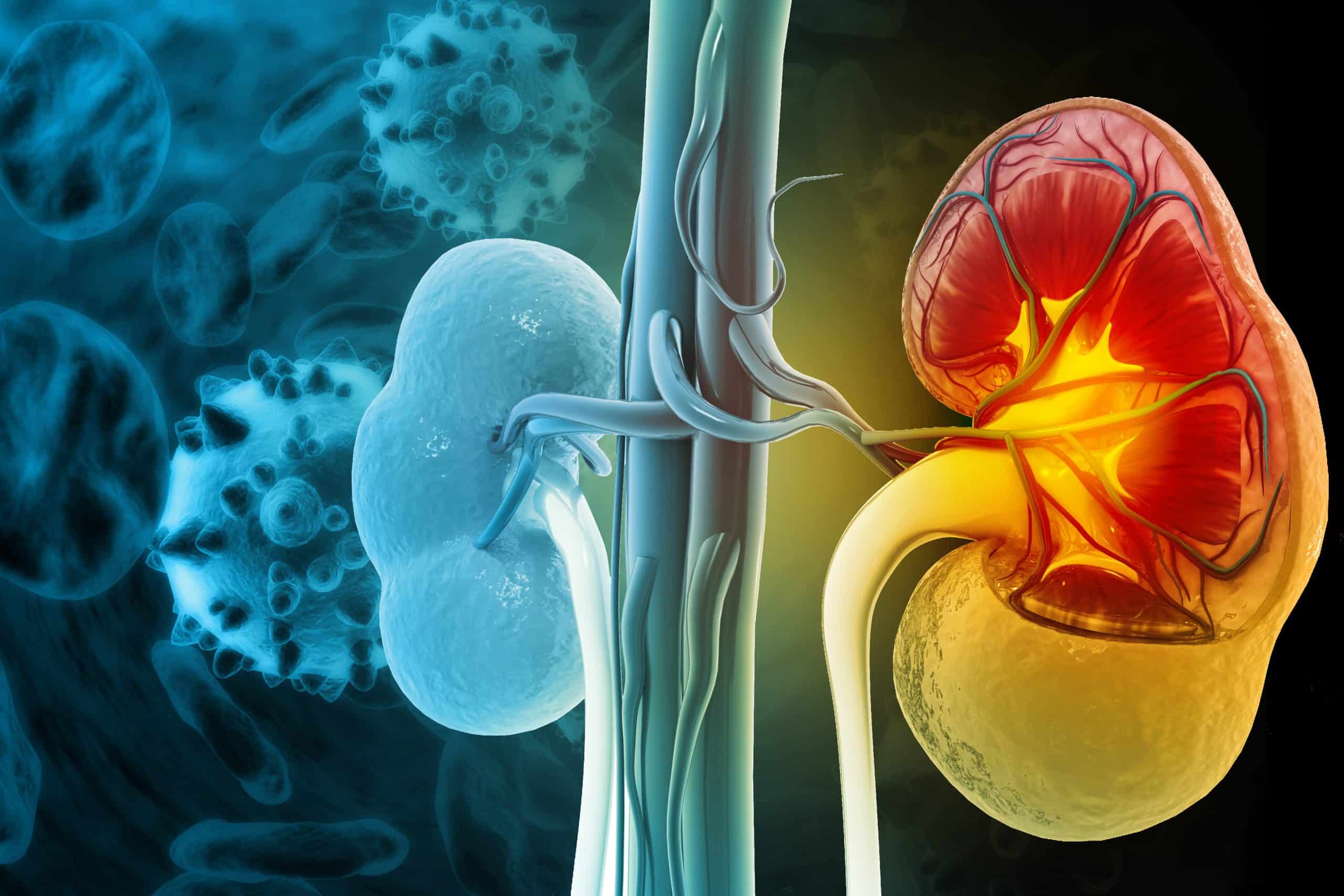Urinary Retention in Florida
Regain Your Flow
Understanding Male Urinary Retention
It’s More Than Just an Inconvenience
Every man has his routine, and for most, going to the restroom should be a straightforward process. However, imagine standing there, feeling the overwhelming urge to urinate but finding that no matter how hard you try, nothing or very little comes out.
It’s frustrating, it’s uncomfortable, and can sometimes even be painful. This feeling – the constant pressure, the sleepless nights, the interruptions to your day-to-day life – is what many men with urinary retention experience.
For these men, a simple outing with friends becomes a game of “how many restrooms are nearby?” Sleep becomes elusive as they wake up multiple times during the night with the urge, yet the inability, to void.
Over time, this condition can also weigh heavily on one’s mental and emotional well-being, leading to feelings of embarrassment or anxiety. Men with urinary retention might find themselves declining social invitations or avoiding travel due to the unpredictability of their condition.
What is Male Urinary Retention?
Male urinary retention refers to the inability or difficulty in emptying the bladder completely. While it can affect men of all ages, it’s more common in older men.
Types of Urinary Retention
1. Acute Urinary Retention (AUR): This is a sudden and painful inability to urinate, even though the bladder is full. It’s a medical emergency that requires immediate attention, as it can lead to bladder damage or other complications.
2. Chronic Urinary Retention: This type can be a silent problem. Men might still urinate, but they can’t fully empty their bladder. Over time, they might experience frequent urinations, especially during the night, a weak or slow stream, or a feeling of incomplete bladder emptying.
Functional and Regenerative Medicine Perspective on Male Urinary Retention Causes
Functional medicine delves into the underlying causes of diseases, taking into account the entirety of the individual’s history, lifestyle, and unique genetic makeup. Regenerative medicine, on the other hand, focuses on methods to regrow, repair, or replace damaged or diseased cells, organs, or tissues. Both offer unique insights into urinary retention.
Hormonal Imbalances
The balance between testosterone, estrogen, and dihydrotestosterone (DHT) plays a crucial role in prostate health. In functional medicine, a comprehensive hormonal panel would be considered to understand any imbalances that might contribute to an enlarged prostate or BPH, leading to retention.
Dietary and environmental estrogens can also impact this balance, promoting prostatic growth and dysfunction.
Inflammation
Chronic inflammation is a cornerstone of many conditions in functional medicine. An inflamed prostate can swell, causing pressure on the urethra and leading to retention.
Dietary triggers, such as high sugar intake or food sensitivities (like gluten or dairy), can exacerbate inflammation.
Gut Health and Dysbiosis
A dysfunctional gut microbiome can influence systemic inflammation and immunity. There’s emerging evidence suggesting a link between gut health and prostate conditions.
Functional medicine might investigate gut dysbiosis, leaky gut, or other gastrointestinal issues as contributing factors.
Toxins and Environmental Exposures
Chronic exposure to environmental toxins like heavy metals, pesticides, or endocrine-disrupting chemicals can contribute to urinary issues.
Detoxification pathways, when compromised, can also play a role in urinary retention.
Neural Dysfunction
Regenerative approaches might consider nerve damage or dysfunction. The bladder’s ability to contract and the sphincter’s ability to relax depend on intricate neural pathways.
Stem cell therapy or other regenerative techniques might be explored to restore nerve function.
Tissue Degeneration and Scarring
From a regenerative perspective, urinary retention might be due to the degeneration of muscular tissue in the bladder or scarring of the urinary tract.
Regenerative therapies, such as platelet-rich plasma (PRP) or stem cell treatments, might be considered to heal and rejuvenate these tissues.
Lifestyle Factors
Sedentary lifestyles can lead to pelvic floor muscle dysfunction, which may play a role in urinary retention.
Stress, too, can influence pelvic floor dynamics and overall urinary function.
Nutritional Deficiencies
Adequate nutrition is essential for cellular function. Magnesium, for instance, is vital for muscle relaxation, including those in the urinary tract. Zinc is crucial for prostate health. A functional approach would assess and address these and other potential deficiencies.
Conclusion
In functional and regenerative medicine, the approach to male urinary retention is comprehensive, considering multiple interconnected factors. Tailored interventions, encompassing lifestyle, diet, detoxification, and innovative treatments, can offer promising results for those facing this challenging condition.
Functional and Regenerative Medicine
vs. Traditional Urology Care
While traditional urology care primarily focuses on symptom management through medications and surgical procedures, functional and regenerative medicine adopts a holistic approach. The aim is to understand and treat the root causes of the problem.
Root Cause Approach:
We assess the whole body, considering factors like diet, lifestyle, microvasculature, hormone balance, metabolic health, hydration and mental well-being that frequently contribute to prostatitis.
Personalized Treatments:
No two bodies are the same, so why should treatments be? The Doctors Studio medical team tailors treatments to individual needs, addressing imbalances and optimizing function.
Regenerative Techniques:
This approach uses therapies that aim to heal and regenerate damaged tissues, providing longer-lasting results and improved health and wellness.
Functional Medicine Approach:
Takes a holistic approach. It doesn’t just look at the disease but aims to understand its root cause. This approach might involve looking at genetic predispositions, environmental exposures, lifestyle factors, and more. The idea is not just to treat but to prevent, rejuvenate, and regenerate. By addressing the underlying causes and imbalances that contribute to prostate cancer, functional and regenerative medicine offers a more comprehensive approach to health and well-being.
-
-
- Comprehensive assessment to understand the patient’s entire health picture including specialty labs.
- Dietary and lifestyle changes tailored to the patient’s lab results.
- Use of natural supplements to target inflammation and promote healing.
- Stress management and physical therapies.
- Sleep optimization and restoration
- Personalized treatment plans that evolve with the patient’s progress.
- IV Nutrient/Ozone/UBI “TRIFECTA” Therapy
- EBOO, an oxygenation and ozonation process enhances the body’s immune response, reduces inflammation, and promotes healing.
- Hormone replacement therapy (TRT)
- Nutritional therapy to optimize cellular health
- Detoxification to rid the body of potential carcinogens
- Stress management, as chronic stress, can suppress the immune system
- Methylene Blue for urinary tract and prostatitis acts as a mild antiseptic, reducing bacterial activity and inflammation in the urinary tract. Its anti-inflammatory effects aid in alleviating symptoms of prostatitis
-
Regenerative Medicine Approach:
-
-
- Ozone injections to promote healing directly in the prostate tissue.
- PEMF (Pulsed Electromagnetic Field Therapy) to enhance healing and reduce inflammation.
- Neural therapy for chronic pelvic pain syndromes
- Custom antibiotic, antiviral, anti-fungal and anti-inflammatory prostate injection designed based on lab data collection.
- LI-ECSW (shockwave) to correct tight pelvic floor muscles and to stimulate tissue regeneration and blood flow
- Platelet Rich Plasma Prostate Injections
- Exosome and Stem Cell IV Infusions
- IV Chelation Therapy for removal of toxic burden
- Peptides specifically for healthy prostate tissue regeneration, decrease of inflammation, and hormone optimization.
-
In contrast, traditional urology might prescribe antibiotics, even if bacteria aren’t present, or recommend procedures that offer temporary relief. While both approaches have their merits, functional and regenerative medicine focus on long-term healing and health optimization, rather than merely putting a band-aid on the symptoms.
Seeking relief from Urinary Retention?
“Through our unique approach, we explore a wide range of factors to determine what is causing
your prostate to act up.”
Interested in Improving Your Prostate Health?
How To Get Started

Choose an Assessment Plan
Start the process by determining your current
wellness status.

Schedule a Consultation
Meet with an expert practitioner to review the results of you assessment and discuss your customized treatment plan.

Begin Your Wellness Journey
It's time to get back to balance and experience optimal wellness and quality of life



